Climate of impunity still prevails in Bangladesh: AI
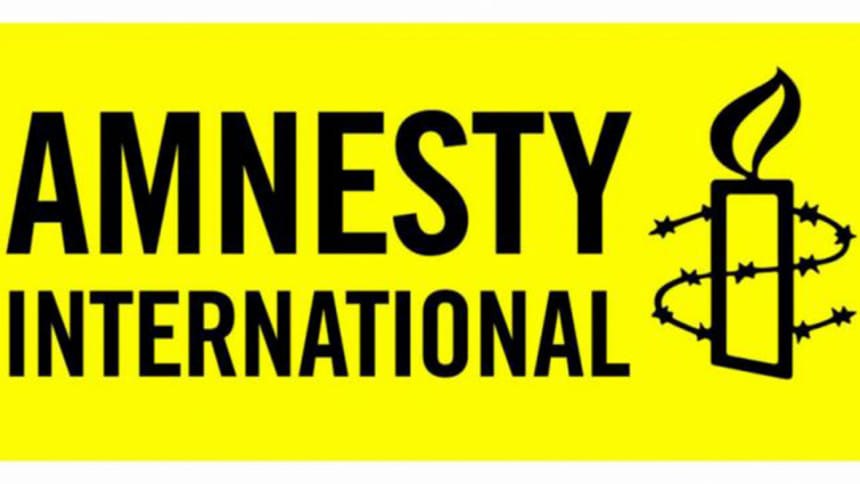
The failure of Bangladeshi authorities to take decisive action against violent groups responsible for at least 10 killings over the past two months has created a climate of impunity, Amnesty International said today.
In a statement, Champa Patel, Amnesty International's Regional Director for South Asia, said, "The brazen announcement by violent groups that they will continue targeting those they perceive as 'insulting Islam' should shake the Bangladeshi authorities out of their complacency."
"Ignoring the problem is not a solution. The authorities must categorically condemn these killings, carry out a prompt, thorough, impartial and transparent investigation, deliver justice for the victims, hold the perpetrators accountable, and protect those still under threat."
On Sunday, Sunil Gomes, a 65-year-old Christian man from the village of Bonpara, became at least the tenth person to be hacked to death in Bangladesh in the last two months. He was attacked at his grocery shop near a church shortly after Sunday services.
The armed group calling itself the Islamic State (IS) has claimed responsibility for the attack, stating on a website that it was "part of a series of operations" it is intent on carrying out in Bangladesh.
A day earlier, on Saturday, Mahmuda Akter, the wife of Babul Akter, a senior anti-terrorism official, was killed in the city of Chittagong in similarly gruesome circumstances. The Bangladeshi home minister, Asaduzzaman Khan Kamal, has said he suspects the murder was related to the anti-terrorism official's work investigating earlier killings.
Since April, Amnesty International has recorded the killings of secular bloggers, LGBTI activists, a university professor, a doctor and members of minority religious communities.
"The Bangladeshi government has often claimed to be a bulwark against intolerance, but their actions indicate otherwise," said Champa Patel.
"Instead of devoting their energies to ending this wave of killings, it has spurned calls for protection and even sought to blame the victims for the threats they face. This is in contravention of the government's international obligations to protect and promote the right to freedom of expression and religion."
In the current climate of impunity, increasing numbers of people have reported facing threats that the authorities have repeatedly failed to address.
In response to appeals for protection, secular and LGBTI activists have been told by senior officials to avoid provoking the violent groups that threaten them. In some cases, they have even been accused of inviting the attacks.
Following the 14 April 2016 murder of Xulhaz Mannan, the editor of Roopban, Bangladesh's only LGBTI publication, the home minister said: "Our society does not allow any movement that promotes unnatural sex."
"No person should be discriminated against on the basis of their sexuality or religion," said Champa Patel. "Only by protecting these and other human rights can the Bangladeshi authorities ever claim to be champions of tolerance."
TIMELINE
7 April 2016: Nazimuddin Samad, 28, a law student and secular campaigner, was hacked to death in Dhaka. Ansar al-Islam, an al-Qaeda affiliate, claimed responsibility.
23 April 2016: AFM Rezaul Karim Siddique, 58, a university professor, was killed on his way home in the Rajashahi, The group calling itself Islamic State (IS) claimed responsibility.
25 April 2016: Xulhaz Mannan, an LGBTI activist and an employee of USAID, and his friend, Tanoy Mujhumdar, an actor, were stabbed to death in Mannan's Dhaka apartment. The group calling itself Islamic State (IS) claimed responsibility.
30 April 2016: Nikhil Joarder, a Hindu tailor, was hacked to death by attackers borne on a motorcycle. The group calling itself Islamic State (IS) claimed responsibility.
14 May 2016: Maung Shue U Chak, 75, a Buddhist month, was hacked to death in the district of Bandarban. The group calling itself Islamic State (IS) claimed responsibility.
20 May 2016: Mir Sanaur Rahman, 55, a doctor, was hacked to death. His friend, Saifuzzaman, 45, a university lecturer, was seriously wounded.
25 May 2016: Debesh Chandra Pramanik, 68, a Hindu, was killed in his shop in Gaibandha. The group calling itself Islamic State (IS) claimed responsibility.
5 June 2016: Mahmuda Akter, the wife of a senior counter-terrorism official, was killed outside her apartment in Chittagong. The Bangladeshi Home Minister said the attack was linked to her husband's investigations into the wave of machete killings.
6 June 2016: Sunil Gomes, 65, a Christian trader, was hacked to death at his grocery shop in the village of Bonpara.

 For all latest news, follow The Daily Star's Google News channel.
For all latest news, follow The Daily Star's Google News channel. 

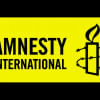


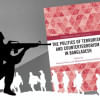
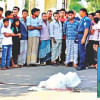

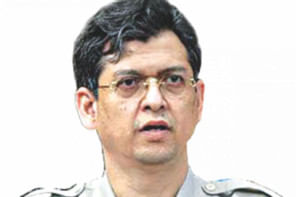
Comments